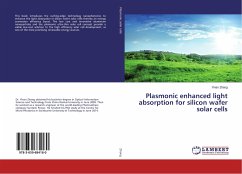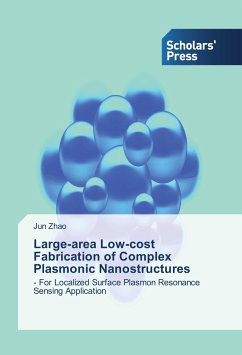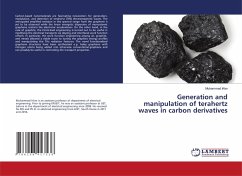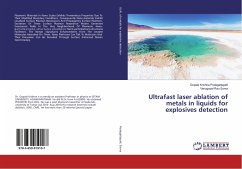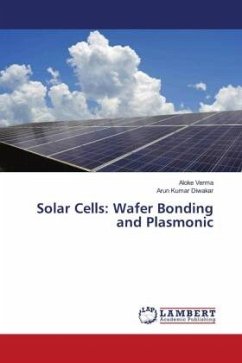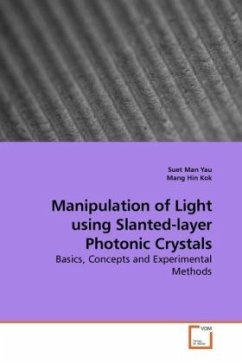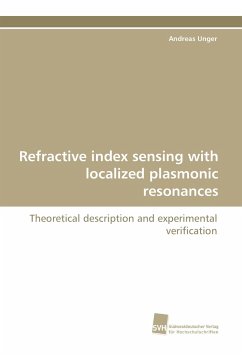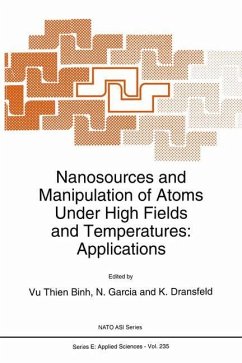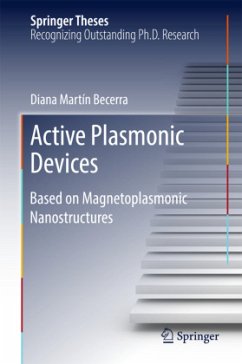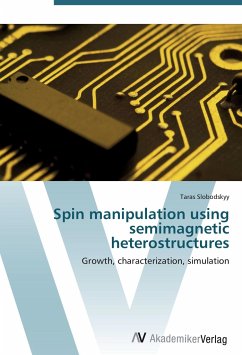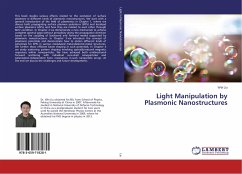
Light Manipulation by Plasmonic Nanostructures
Versandkostenfrei!
Versandfertig in 6-10 Tagen
41,99 €
inkl. MwSt.

PAYBACK Punkte
21 °P sammeln!
This book studies various effects related to the excitation of surface plasmons in different kinds of plasmonic nanostructures. We start with a general introduction of the field of plasmonics in Chapter 1, where we discuss both propagating surface plasmon polaritons (SPPs) and localized surface plasmons (LSPs), and how they are related to each other through Bohr condition. In Chapter 2 we demonstrate a new mechanism to achieve complete spectral gaps without periodicity along the propagation direction based on the coupling of backward and forward modes supported by plasmonic nanostructures. In ...
This book studies various effects related to the excitation of surface plasmons in different kinds of plasmonic nanostructures. We start with a general introduction of the field of plasmonics in Chapter 1, where we discuss both propagating surface plasmon polaritons (SPPs) and localized surface plasmons (LSPs), and how they are related to each other through Bohr condition. In Chapter 2 we demonstrate a new mechanism to achieve complete spectral gaps without periodicity along the propagation direction based on the coupling of backward and forward modes supported by plasmonic nanostructures. In Chapter 3 we introduce the concept of plasmonic potentials and demonstrate how to obtain different kinds of potentials for SPPs in various modulated metal-dielectric-metal structures. We further show efficient beam shaping in such potentials. In Chapter 4 we study scattering pattern shaping involving optically-induced magnetic responses within nanoparticles. We have achieved both unidirectional forward scattering with individual core-shell nanoparticles and polarization-independent Fano resonances in such nanparticle arrays. At the end we discuss the challenges and future developments.



